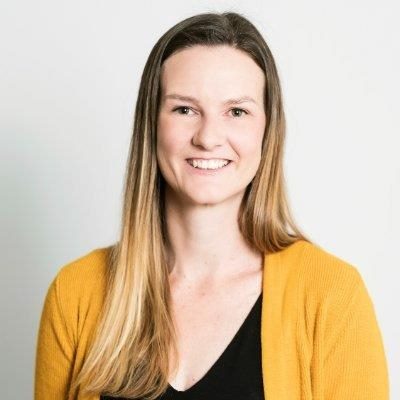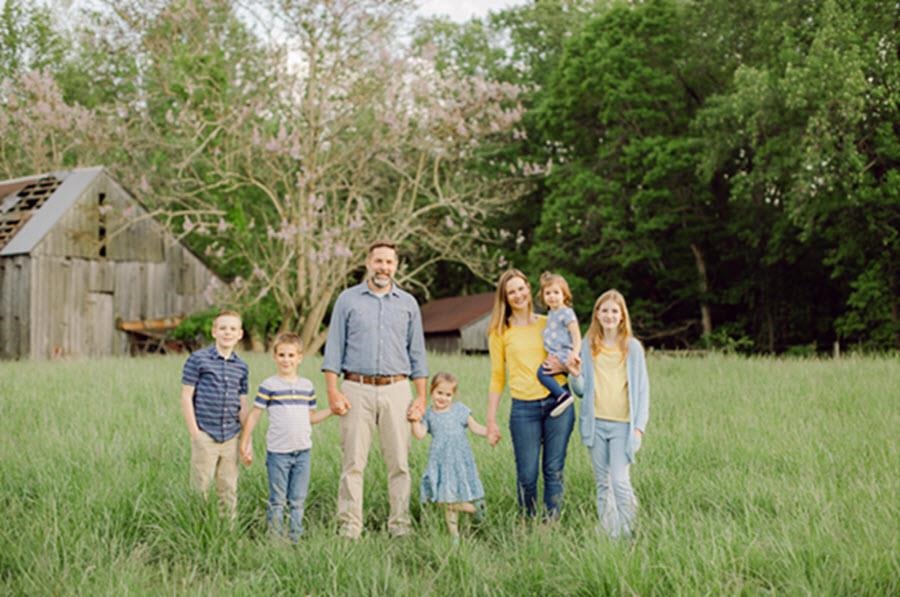Jamie Tiralla swapped the world of citrine and sapphires for cows and sheep
By Diego Flammini
Staff Writer
Farms.com
Jamie Tiralla grew up about 15 minutes away from Monnett Farms, the beef cattle and sheep operation in Calvert County, Md., that she and her husband Benson run while raising their five children who are between the ages of two and 13.
But it took her a while to get there.
After college, she went to California to study gemology at the Gemological Institute of America. She moved back home to Maryland to work at a jewelry store her friends had opened. She did appraisals and helped with a custom jewelry business.
When she met Benson and discovered he’s a farmer, she was interested about what that meant.
“It was intriguing more than anything,” she told Farms.com. “It was an appealing aspect of him that I was attracted to. I also like to learn new things, and this was a whole world that got unlocked for me through this connection I had with Benson.”
The couple took over the farm from Benson’s parents in 2007.
Jamie eventually left her job as a gemologist to focus on a communications career, the farm, which sells its products directly to consumers and other vendors, and their new family.
Currently, she’s the director of strategic communications at the American Forest & Paper Association.
And despite not growing up on a farm, Tiralla consistently uses the skills she learned during her previous career.
“I’m certainly familiar with sales and talking to people,” she said. “And I enjoy the entrepreneurial side of the business. So, I’m able to apply a lot of what I was doing in gemology to what we’re doing on the farm and with our customers.”

Jamie Tiralla
Since becoming a farmer, Tiralla has a new appreciation for what’s around her.
From the animals to the environment, the way she thinks about the world has changed.
“I often reflect about the animals we care for, the earth and the new people in our lives because of agriculture,” she said.
Knowing where her journey took her, Tiralla would tell her younger self that the results are worth the work.
But that work won’t be easy.
“I’d tell her to be open and curious about it, and also that it’s going to be harder than you think it’s going to be, but it’s worth it in the end,” she said. And that there’s nothing like being connected to a place or the food you’re producing and the community you’re feeding.”
These are also conversations she has with her children.
And some of the discussions are difficult now but will help them in the future.
“Sometimes animals get sick, or there’s calves that don’t make it,” she said. “But I’m glad they get to experience those feelings with us because I think it helps them learn to process grief and emotion in a way that I was certainly never taught as a kid.”
Some of the children have expressed an interest in working on the farm, while others have said they’d like to go a different path.

The Tiralla family (Left to right: Henry, Isaac, Benson, Beatrice, Jamie, Maggie and Caroline).
A message Tiralla has for young women considering working in ag, is to go for it because agriculture means more than just food production.
“It’s critical to have people passionate about agriculture in every part of the sector,” Tiralla said. “Working in ag doesn’t only mean being a farmer. There’s opportunities for you to pursue what you love doing, and using ag as a vehicle to showcase those skills.”
Part of finding one’s path in the ag sector may include a support system.
Tiralla got into farming with no prior background and in her mid-20s.
And she’s had multiple mentors along the way.
“There’s no way I could list all the women who have been there for us, but Susie Hance-Wells from Taney Place Farm is someone who stands out,” Tiralla said. “She encouraged us to get involved with the Maryland Farm Bureau and the doors she helped open for us in terms of leadership opportunities has provided us with so much invaluable experience.”
Farms.com is highlighting women in agriculture in the lead up to International Women’s Day on March 8.
Jennifer Meyer, a cash crop and livestock producer from Wilton, N.D., has already participated.
As has Sally Parsonage, a farmer from Westman, Man.